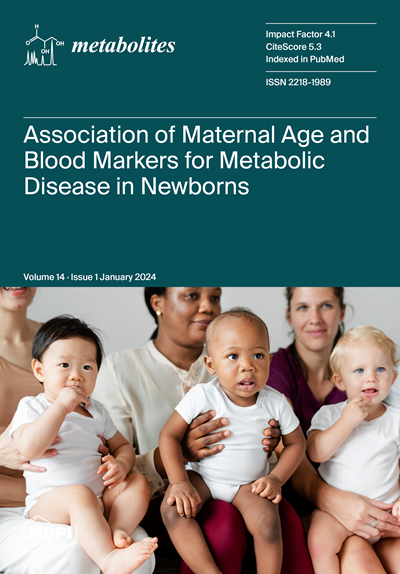Peripheral Lipid Signatures, Metabolic Dysfunction, and Pathophysiology in Schizophrenia Spectrum Disorders
IF 3.4
3区 生物学
Q2 BIOCHEMISTRY & MOLECULAR BIOLOGY
引用次数: 0
Abstract
Metabolic dysfunction is commonly observed in schizophrenia spectrum disorders (SSDs). The causes of metabolic comorbidity in SSDs are complex and include intrinsic or biological factors linked to the disorder, which are compounded by antipsychotic (AP) medications. The exact mechanisms underlying SSD pathophysiology and AP-induced metabolic dysfunction are unknown, but dysregulated lipid metabolism may play a role. Lipidomics, which detects lipid metabolites in a biological sample, represents an analytical tool to examine lipid metabolism. This systematic review aims to determine peripheral lipid signatures that are dysregulated among individuals with SSDs (1) with minimal exposure to APs and (2) during AP treatment. To accomplish this goal, we searched MEDLINE, Embase, and PsychINFO databases in February 2024 to identify all full-text articles written in English where the authors conducted lipidomics in SSDs. Lipid signatures reported to significantly differ in SSDs compared to controls or in relation to AP treatment and the direction of dysregulation were extracted as outcomes. We identified 46 studies that met our inclusion criteria. Most of the lipid metabolites that significantly differed in minimally AP-treated patients vs. controls comprised glycerophospholipids, which were mostly downregulated. In the AP-treated group vs. controls, the significantly different metabolites were primarily fatty acyls, which were dysregulated in conflicting directions between studies. In the pre-to-post AP-treated patients, the most impacted metabolites were glycerophospholipids and fatty acyls, which were found to be primarily upregulated and conflicting, respectively. These lipid metabolites may contribute to SSD pathophysiology and metabolic dysfunction through various mechanisms, including the modulation of inflammation, cellular membrane permeability, and metabolic signaling pathways.精神分裂症谱系障碍的外周血脂特征、代谢功能障碍与病理生理学
精神分裂症谱系障碍(SSD)患者通常会出现代谢功能障碍。导致精神分裂症谱系障碍代谢并发症的原因很复杂,包括与精神分裂症有关的内在或生物因素,而抗精神病药物(AP)又会加重这些因素。SSD病理生理学和抗精神病药物诱发代谢功能障碍的确切机制尚不清楚,但脂质代谢失调可能是其中的一个原因。脂质组学可检测生物样本中的脂质代谢物,是研究脂质代谢的一种分析工具。本系统综述旨在确定 SSD 患者(1)在极少接触 APs 的情况下和(2)在 AP 治疗期间发生失调的外周脂质特征。为了实现这一目标,我们检索了 2024 年 2 月的 MEDLINE、Embase 和 PsychINFO 数据库,以确定作者在 SSD 患者中进行脂质组学研究的所有英文全文文章。据报道,与对照组相比,或与 AP 治疗有关,SSD 患者的脂质特征存在明显差异,调节失调的方向也作为结果被提取出来。我们确定了 46 项符合纳入标准的研究。与对照组相比,经 AP 治疗的微量患者的脂质代谢物存在明显差异,其中大部分是甘油磷脂,它们大多被下调。在 AP 治疗组与对照组中,差异显著的代谢物主要是脂肪酰基,不同研究中脂肪酰基的失调方向相互矛盾。在 AP 治疗前与 AP 治疗后的患者中,受影响最大的代谢物是甘油磷脂和脂肪酰,这两种代谢物分别被发现主要上调和相互冲突。这些脂质代谢物可能通过各种机制,包括炎症、细胞膜通透性和代谢信号通路的调节,导致 SSD 病理生理学和代谢功能障碍。
本文章由计算机程序翻译,如有差异,请以英文原文为准。
求助全文
约1分钟内获得全文
求助全文
来源期刊

Metabolites
Biochemistry, Genetics and Molecular Biology-Molecular Biology
CiteScore
5.70
自引率
7.30%
发文量
1070
审稿时长
17.17 days
期刊介绍:
Metabolites (ISSN 2218-1989) is an international, peer-reviewed open access journal of metabolism and metabolomics. Metabolites publishes original research articles and review articles in all molecular aspects of metabolism relevant to the fields of metabolomics, metabolic biochemistry, computational and systems biology, biotechnology and medicine, with a particular focus on the biological roles of metabolites and small molecule biomarkers. Metabolites encourages scientists to publish their experimental and theoretical results in as much detail as possible. Therefore, there is no restriction on article length. Sufficient experimental details must be provided to enable the results to be accurately reproduced. Electronic material representing additional figures, materials and methods explanation, or supporting results and evidence can be submitted with the main manuscript as supplementary material.
 求助内容:
求助内容: 应助结果提醒方式:
应助结果提醒方式:


